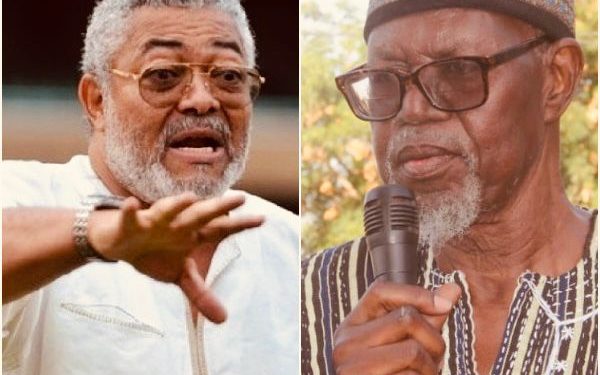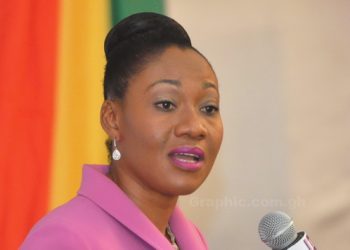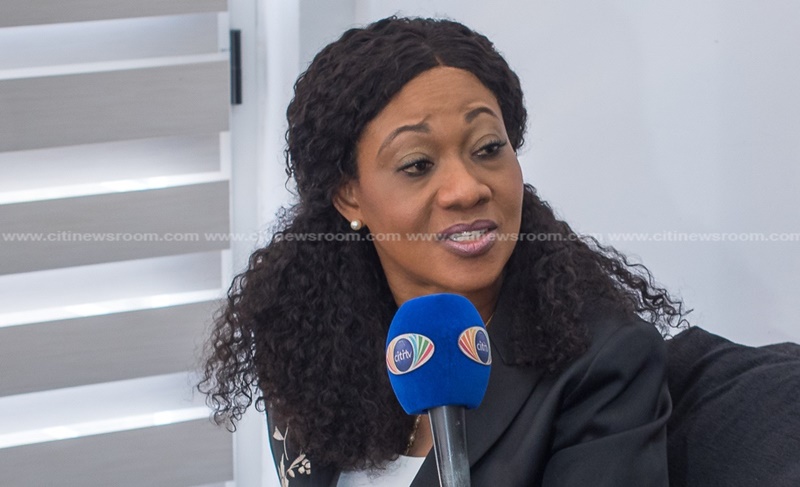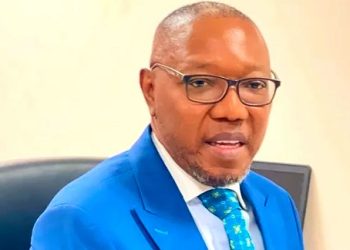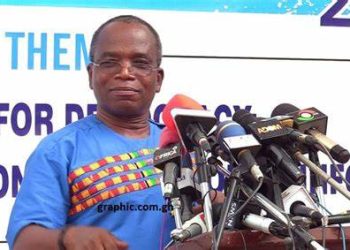This is the concluding part of an article authored by Prof. Kwesi Yankah in December 1991 and published in the Mirror.
——-
Part 2 (Conclusion)
By Kwesi Yankah
Later all were seated. Then came the national anthem to which everybody was supposed to stand.
Did Ndebugre get up too?
“Yes, we all got up”, he said, denying previous allegations. “In fact, there was an old man, about a hundred years old, sitting to my right. He did not rise, because when the Chairman came round to shake hands, we stood up; and as he shook people and passed, people sat down. When the national anthem started we all got up again, and I thought it was too much for this old man, so he didn’t get up when the national anthem was being played. Otherwise, everybody was up, including myself.”
I was puzzled. At what point during the anthem did Ndebugre rise? “I stood up as soon as I realised the national anthem was being played”.
From the very beginning, and simultaneously with everybody?
“I will not say so, because it is not even possible that everyone will get up at the same time. This was not a band. It was played on an old Ministry of Information tape recorder….and there were many people I saw sitting down, while I was up; and I remember reminding some people the anthem was being played before they got up. The music was on a record player and the crowd was large, and there was a lot of noise, so you might not even know that the national anthem was being played.”
Would you rather say because you did not recognise it you did not get up immediately?
“It is possible I was not the first to get up,” a relaxed smile registered and exploded into momentary laughter. “I have never realised that everybody in a large crowd gets up at the same time when an anthem is being played. It’s practically impossible.”
But are you aware that you were sitting at a conspicuous spot which made you the cynosure of all eyes, and that one cannot easily get away with things others standing elsewhere would?
“If you are there, and they start playing the anthem, and you think you are tired, so you are relaxing for a while…
“But I got up for the national anthem, because there would be no reason at all. This is what I told the press when they came to the cells to talk to me.”
The Head of State ordered your arrest, on realising you did not get up. I am sure the Chairman’s judgement is quite respectable. Remember he even came to your defence in the newspapers and said you wanted to hang a bad case around your neck?
“I think so, because he was compelled to make that correction, when he realised that independent information was creating a different situation, for example, the picture that was published in the Voice, with me standing up, creates a problem for the media, and for whoever ordered my arrest.”
Nde, I don’t think people doubt the fact that you stood up; the question is the promptness with which you reacted to the anthem.
“Yes, but I am not a military man; so I don’t think if I don’t get up promptly for a national anthem it is an offence. It is only morally reprehensible,” the lawyer in Ndebugre started glowing.
“If, for instance, the person was absent-minded, and absent-mindedness is not something you can blame a person for…”
Would you say you were absent-minded?
“I will not say I was absent-minded. I am insisting I got up in good time.”
“The best way the media and the Chairman could prove that I didn’t get up promptly, or not at all, would have been to show me on television sitting down, when others were standing up…”
The national anthem episode appeared unnoticed, but it was brought up by Chairman Rawlings in his speech three hours later, and that was where he ordered Ndebugre’s arrest.
And how did he react when his arrest was ordered?
According to Ndebugre, the crowd appeared confused by the order either because they had noticed no provocation, or they did not understand the language – English – in which the order was given.
“At that point of the order, policemen and the Chairman‘s bodyguards started rushing towards me, and I decided to stand up and meet them. So I got up and in the local language, I told them an order had been made for my arrest….I then told the Chairman that I was being arrested…I said he should rather have me killed because it was not the national anthem. But the guards wouldn’t allow me to go further so they just pushed me into the cell, just next to the durbar grounds.”
You don’t think your statement could provoke him further?
“No. He couldn’t have been provoked because he had given the order already.”
Ndebugre was later to appear in court in Bolgatanga charged with insulting the national flag, even though a flag was not the issue.
“The magistrate just felt he had no jurisdiction, because there is a substantive magistrate at Bawku; then also he was personally present at the scene and saw what happened. I need to make the correction because the Ghanaian Times said he was there and saw the insulting behaviour, which he couldn’t have said because that amounted to passing a judgement on me….
“They discharged me and I was rearrested and taken back into the cells, to be taken to the Circuit Court the following day, but I was never taken to court.”
Instead of being taken to court, orders came for Ndebugre to be put through a drill. The national anthem should be played to him every 6am. and 6pm. and he should learn how to rise to it.
But Nde must have heaved a sigh of relief when on the 18th at 7.30pm. the Assistant Commissioner gave him a letter saying he had decided to discontinue the case.
An arch-opponent of PNDC; but would John Ndebugre admit he is a dissident?”
“I don’t know who is a dissident because there are two meanings to dissident in this country. If you take the dictionary, it would only say, ‘somebody who disagrees’. In that sense, yes I dissent. I dissented quite a lot even when I was in Government….I stated my position clearly and strongly against certain things.
“In Ghana they have given dissent a technical meaning, which implies you want to overthrow the Government by force. In that respect I am not a dissident, but I will not be too unhappy if this regime is forced out of office because it has overstayed. So in that case I am not a dissident.”
Are you worried about a possible stigma?
“No, because people will ask me and I will explain as we are doing now. In any case, the reaction of the population where the incident took place convinced me that if it was anybody’s aim to stigmatise me, it failed completely.”
At this point, my meeting with Ndebugre was adjourned until … the next national anthem.
kwyankah@yahoo.com
December 1991

